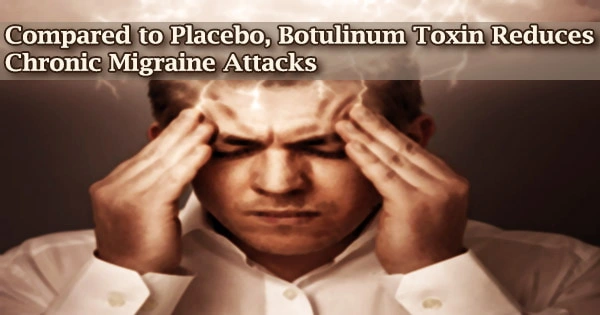An updated study and analysis published in the January issue of Plastic and Reconstructive Surgery® concluded that there is accumulating evidence to support the usefulness of botulinum toxin injections in lowering the frequency of chronic migraine headaches.
Botulinum toxin is superior to an inert placebo for the prevention of migraines, according to research by Prof. Benoit Chaput, MD, Ph.D., of University Hospital Rangueil in Toulouse, France, and colleagues based on a meta-analysis of pooled clinical trial data.
“Botulinum toxin is a safe and well-tolerated treatment that should be proposed to patients with migraine,” the researchers write.
A frequent and incapacitating disorder, migraine affects about 12% of the population. Migraine was identified as the third most common global cause of years spent with a disability in the Global Burden of Disease Study published in 2019.
Sometimes the frequency of migraine attacks rises over time. A chronic migraine is characterized by at least 15 headache days per month, with at least 8 of those days exhibiting migraine-like symptoms, for a period of time longer than three months.
Less frequent headache attacks that eventually develop into a pattern of increasingly frequent headaches are how chronic headaches start. The management of lifestyle factors and headache triggers, the control of migraine attacks, and the provision of preventative therapies to lessen migraine attacks are the main goals of treating chronic migraine.
Assembled Evidence Supports Effectiveness of Botox for Chronic Migraine
In 17 prior randomized trials comparing botulinum toxin with a placebo for the prevention of migraine headaches, Prof. Chaput and colleagues located and examined data.
It can be explained by the reduced impact of headaches and migraine-related disability, thus reducing symptoms of depression and anxiety.
Prof. Benoit Chaput and coauthors
In 2010, the US Food and Drug Administration (FDA) authorized the use of botulinum toxin, better known by the brand name Botox, to treat severe migraines. Since then, an increasing number of patients have reported positive outcomes from using injections of botulinum toxin to treat chronic migraine headaches.
Nearly 3,650 individuals were enrolled in the 17 research, and 1,550 of them had chronic migraine, which is characterized by at least 15 headache attacks per month for longer than three months and at least eight days per month of migraine symptoms. The remaining patients experienced episodic migraine headaches less frequently.
Botulinum toxin injections considerably decreased the frequency of chronic migraine attacks according to pooled data analysis. In comparison to those who received an inactive placebo three months following their injection, patients treated with botulinum toxin experienced an average of 1.6 fewer migraine attacks per month.
Within two months of receiving botulinum toxin treatment, the improvement was noticeable. Botulinum toxin injections are frequently repeated every three months to maintain the effects of treatment.
Additionally, there was a “statistical tendency” for patients with episodic migraine to experience fewer attacks after receiving botulinum toxin. Again, within two months, improvement materialized. Although there were more negative effects from botulinum toxin than from a placebo, none of them were severe.
The combined data also revealed a notable rise in patients receiving botulinum toxin treatment’s quality of life. A decrease in depressed symptoms was directly related to this improvement.
“It can be explained by the reduced impact of headaches and migraine-related disability, thus reducing symptoms of depression and anxiety,” Prof. Chaput and coauthors write.
The prevalence of migraine headaches is rising, and this disorder causes significant disability and an increase in the utilization of healthcare resources.
Despite the FDA’s approval of botulinum toxin injections for chronic migraine, there are still conflicting results about their efficacy. The most recent report offers a thorough overview of the best available evidence, including three randomized trials that were not covered in earlier studies.
The results show a significant decrease in headache frequency after two and three months, which provides solid evidence for the usefulness of botulinum toxin injection as a preventive treatment for chronic migraine.
Prof. Chaput and colleagues add, “For the first time, our analysis highlights the significant improvement in patients’ quality of life at three months in the Botox group which exhibited few and mild adverse events.”
















